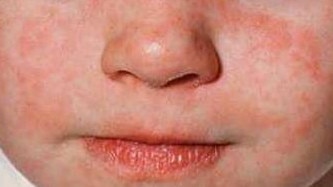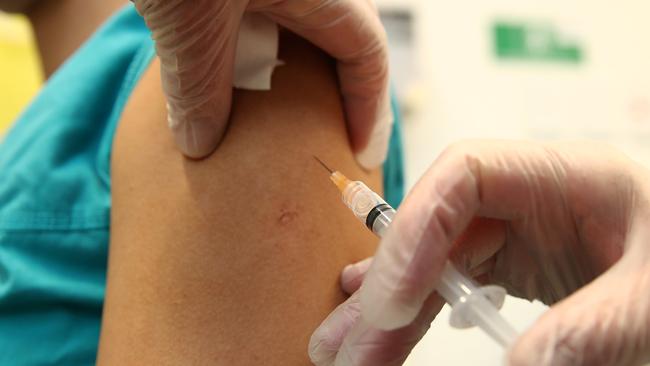Measles cases double in Queensland this year as more fly in from New Zealand
Queensland has recorded more than double the measles cases this year compared to 2018, with public health expert warning more are expected as an outbreak of the potentially deadly disease hits across the ditch.

QLD News
Don't miss out on the headlines from QLD News. Followed categories will be added to My News.
QUEENSLAND has recorded four more measles cases this week, including three people flying in from New Zealand, which is experiencing its largest outbreak of the highly contagious virus in two decades.
The new cases, in Cairns, Brisbane and the Gold and Sunshine coasts, take this year’s Queensland measles tally to 30 – more than double the 14 recorded in 2018.
Health experts have suggested the Federal Government should consider broadcasting warnings about measles on planes coming from New Zealand into Australia, given the epidemic across the Tasman.
MEASLES CASES SURGE AS ANTI-VAXXERS UNDERMINE HEALTH MESSAGES
SEPSIS TAKING MORE THAN 2000 QLD LIVES A YEAR
Two pregnant women have lost their babies as a result of measles complications during the outbreak sweeping New Zealand, which has had more than 1600 cases this year.

Queensland’s Chief Health Officer Jeannette Young said the world was experiencing “significant outbreaks” of measles, putting travellers at very high risk.
“New Zealand, at the moment, has a big measles outbreak,” she said. “They’re recommending very, very strongly that any travellers, before travelling to New Zealand, get two doses of the measles vaccine if they haven’t previously been immunised or had the disease.”
Immunisation expert Paul Van Buynder said people born between 1972 and 1992 may have only received one dose of the measles vaccine. “They’re at risk,” he said. “They need to have a second dose. Anybody that isn’t sure whether they’ve had two doses should see their general practitioner to make sure they’re protected.”
Metro North public health physician Mekala Srirajalingam described measles as one of the most infectious of all communicable diseases, spread by droplets generated through coughing and sneezing.

“Early symptoms include fever, runny nose, lethargy and sore, red eyes. This is followed a few days later by a blotchy red rash, which often starts on the face.”
“Symptoms typically start between 10 and 18 days after infection so anyone who develops symptoms within the next couple of weeks should contact their family doctor for advice.”
Dr Srirajalingam said it was very important to call the medical practice first to advise they could have measles to allow staff to take precautions to avoid spreading the disease to others.
Measles can cause serious complications, including pneumonia and encephalitis, inflammation of the brain.
For information, phone 13 HEALTH.


